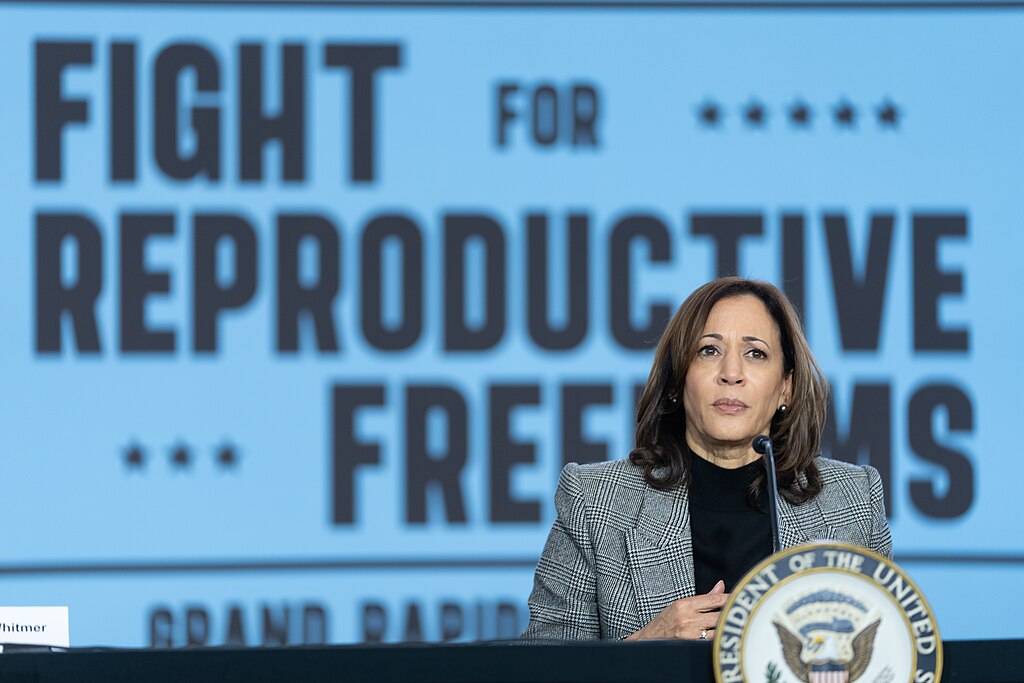As Vice President Kamala Harris continues to navigate her role within the Biden administration, questions are surfacing about her influence on the direction of the country and whether she is actively distancing herself from the policies of President Joe Biden. Recent commentary from a PBS host has reignited discussions about Harris's power and her potential to shape the future of the Democratic Party—and the nation.
Harris, who holds a unique position as both the first female and the first woman of color to serve as vice president, has been a key player in the administration’s decision-making process. However, as the 2024 election looms, there is growing speculation that she may be seeking to differentiate herself from Biden, particularly on contentious issues that have drawn criticism from both sides of the political spectrum.
The PBS host's remarks, which highlighted Harris’s considerable influence over national policy, have led many to wonder whether the vice president is positioning herself as a distinct political entity within the administration. While Harris has been a loyal partner to Biden, there are signs that she may be charting her own course, especially as she considers her future political ambitions.
One of the key areas where Harris appears to be diverging from Biden is on matters of public safety and law enforcement. While the administration has faced pressure from progressives to enact sweeping reforms, Harris has occasionally struck a more moderate tone, reflecting her past as a prosecutor. This balancing act may be an attempt to appeal to a broader electorate, particularly as crime and public safety remain top concerns for many voters.
Additionally, Harris has taken a more nuanced approach to issues like immigration and border security, areas where the Biden administration has faced significant criticism. By subtly distancing herself from some of the administration’s more controversial policies, Harris could be aiming to build her own brand that appeals to both the Democratic base and swing voters.
Critics, however, argue that any attempt by Harris to separate herself from Biden’s policies could backfire, particularly if it is perceived as disloyalty or a lack of unity within the administration. The challenge for Harris will be to maintain her influence while also crafting a narrative that allows her to step out of Biden’s shadow without alienating core Democratic voters.
As the midterm elections approach and the 2024 presidential race begins to take shape, Harris’s role and strategy will be under intense scrutiny. Her decisions now could define her political future, especially if Biden decides not to seek re-election. The vice president’s ability to navigate this complex landscape will be critical to her success, and to the future direction of the Democratic Party.
For now, Harris remains a pivotal figure in the administration, with the power to influence key policy decisions. Whether she chooses to align closely with Biden or carve out a more independent path will be one of the defining questions of her vice presidency—and a focal point for political observers in the coming months.



 Pentagon Ends Military Education Programs With Harvard University
Pentagon Ends Military Education Programs With Harvard University  TrumpRx.gov Highlights GLP-1 Drug Discounts but Offers Limited Savings for Most Americans
TrumpRx.gov Highlights GLP-1 Drug Discounts but Offers Limited Savings for Most Americans  Trump Says “Very Good Talks” Underway on Russia-Ukraine War as Peace Efforts Continue
Trump Says “Very Good Talks” Underway on Russia-Ukraine War as Peace Efforts Continue  Missouri Judge Dismisses Lawsuit Challenging Starbucks’ Diversity and Inclusion Policies
Missouri Judge Dismisses Lawsuit Challenging Starbucks’ Diversity and Inclusion Policies  South Korea Assures U.S. on Trade Deal Commitments Amid Tariff Concerns
South Korea Assures U.S. on Trade Deal Commitments Amid Tariff Concerns  Jack Lang Resigns as Head of Arab World Institute Amid Epstein Controversy
Jack Lang Resigns as Head of Arab World Institute Amid Epstein Controversy  Nighttime Shelling Causes Serious Damage in Russia’s Belgorod Region Near Ukraine Border
Nighttime Shelling Causes Serious Damage in Russia’s Belgorod Region Near Ukraine Border  China Warns US Arms Sales to Taiwan Could Disrupt Trump’s Planned Visit
China Warns US Arms Sales to Taiwan Could Disrupt Trump’s Planned Visit  Netanyahu to Meet Trump in Washington as Iran Nuclear Talks Intensify
Netanyahu to Meet Trump in Washington as Iran Nuclear Talks Intensify  Norway Opens Corruption Probe Into Former PM and Nobel Committee Chair Thorbjoern Jagland Over Epstein Links
Norway Opens Corruption Probe Into Former PM and Nobel Committee Chair Thorbjoern Jagland Over Epstein Links  Ohio Man Indicted for Alleged Threat Against Vice President JD Vance, Faces Additional Federal Charges
Ohio Man Indicted for Alleged Threat Against Vice President JD Vance, Faces Additional Federal Charges  Trump Endorses Japan’s Sanae Takaichi Ahead of Crucial Election Amid Market and China Tensions
Trump Endorses Japan’s Sanae Takaichi Ahead of Crucial Election Amid Market and China Tensions  Trump Backs Nexstar–Tegna Merger Amid Shifting U.S. Media Landscape
Trump Backs Nexstar–Tegna Merger Amid Shifting U.S. Media Landscape  U.S. to Begin Paying UN Dues as Financial Crisis Spurs Push for Reforms
U.S. to Begin Paying UN Dues as Financial Crisis Spurs Push for Reforms  U.S.-India Trade Framework Signals Major Shift in Tariffs, Energy, and Supply Chains
U.S.-India Trade Framework Signals Major Shift in Tariffs, Energy, and Supply Chains  Japan Election 2026: Sanae Takaichi Poised for Landslide Win Despite Record Snowfall
Japan Election 2026: Sanae Takaichi Poised for Landslide Win Despite Record Snowfall  Federal Judge Restores Funding for Gateway Rail Tunnel Project
Federal Judge Restores Funding for Gateway Rail Tunnel Project 































